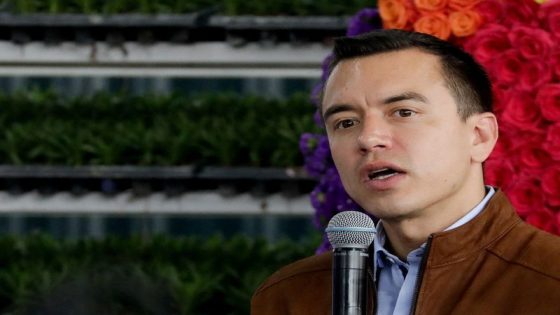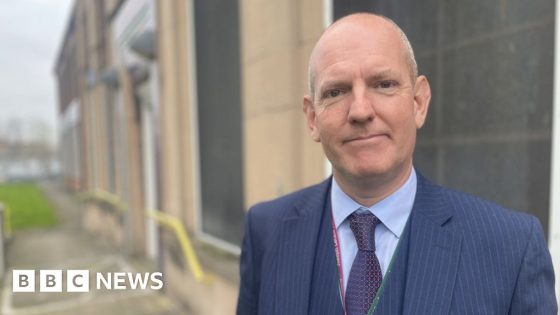QUITO (Reuters) – Ecuador’s President Daniel Noboa looks set to win a referendum on Sunday that asks voters to support new security measures to fight rising violence, although recent power cuts could pose a threat to the ‘yes’ vote.
Cocaine-smuggling gangs have expanded into every corner of Latin America over the last decade, turning once-tranquil nations like Ecuador into cartel badlands, security officials and diplomats say.
In January, the violence made global headlines when gunmen stormed a live television broadcast and scores of prison staff were taken hostage.
The mostly security-related questions in Sunday’s referendum include asking voters to approve allowing the military to patrol with police, extraditing accused criminals, and increasing prison sentences for crimes such as terrorism and murder, among other measures.
Five of the measures would modify the constitution if approved.
Recent polls from companies like Cedatos and Comunicaliza suggest voters are more likely than not to support Noboa, 36, in this weekend’s vote.
However, daily eight-hour power cuts – ordered by Noboa on Wednesday amid energy shortages nationwide – are harming the president’s image, according to polling company Click Research, and could affect how people vote.
“The popular consultation is once again going to be a referendum of approval of the president,” said Click Research director Francis Romero.
The government declared an energy emergency due to historically low levels of reservoirs amid an aggressive El Nino climate phenomenon. Most of Ecuador’s energy is from hydro-power.
Not all the referendum measures – which can be approved or rejected separately – relate to security. Some of them are economic changes Noboa wants to make, such as allowing workers to be contracted by the hour, which opponents say will benefit the rich and international companies.
Investors have embraced Noboa’s security stance after violence-related market volatility.
“Noboa is making investors rethink security risk, and they are seeing him as potentially able to continue through the next election,” said Zulfi Ali, portfolio manager for PGIM Fixed Income’s Emerging Markets Debt team.
Noboa, who took office in November, is expected to seek re-election in 2025.
Ecuadorean bonds have returned near 50% to investors so far this year at the index level, among the highest returns in emerging markets year to date.
(Reporting by Alexandra Valencia and Tito Correa in Quito and Rodrigo Campos in New York; Writing by Oliver Griffin; Editing by Rosalba O’Brien)
Source Agencies



